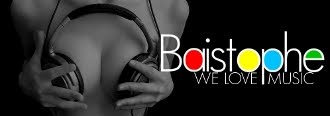After the wrenching revolution Schönberg brought to his music during the final years of the twentieth century's first decade (crystallized in such works as the Three Pieces for piano, Op. 11 and the Five Orchestral Pieces, Op. 16) the composer quickly drew back from the anguished Expressionism of these years to produce the much lighter Dreimal sieben Gedichte aus Albert Girauds Pierrot Lunaire (Three-times-seven Songs from Albert Giraud's Pierrot Lunaire, or, as it is known the world 'round, simply Pierrot Lunaire), Op. 21, of 1912 — a cycle of 21 songs for voice and chamber group that, in the composer's own words, voices sentiments that are "Light, ironic, [and] satirical."
Pierrot Lunaire takes the shape of a single large melodrama in which the female voice gives the text a treatment that is midway between speech and song (the technique, called Sprechstimme, goes all the way back to Humperdinck, though it found its best use at the pens of the Second Viennese School composers). Three sections, comprised of seven songs each, showcase the five instrumentalists in all sorts of wonderfully colorful combinations as the narrator tells of the wandering Pierrot's experiences — indeed, the contrasts offered by just the piano, violin, cello, flute, and clarinet are not enough for Schönberg, who makes the violinist, flutist, and clarinetist double on viola, piccolo, and bass clarinet, respectively. Each of the 13-line poems is a rondel, the opening lines being repeated during the middle of the poem as a kind of refrain.
Structural and motivic connections abound throughout the work, and we find such devices as the recurrence of the queasy solo flute melody of No. 7, "The Sick Moon," in the 13th song, "Decapitation" (part of Pierrot Lunaire's admittedly darker second section, in which the demons of Expressionism come out to play once more), and the use of a passacaglia form in "Night," the first song of Part 2. By the time of "The Moonspot" in Part 3, Schönberg has worked up to the level of a full double-canon (for the pair of woodwinds and the pair of strings). No. 19, "Serenade," is almost a virtuoso piece for cello and piano, while the final song of the melodrama, "O Ancient Charm of Fairy Days," is of the tender, epilogue variety.
Pierrot Lunaire takes the shape of a single large melodrama in which the female voice gives the text a treatment that is midway between speech and song (the technique, called Sprechstimme, goes all the way back to Humperdinck, though it found its best use at the pens of the Second Viennese School composers). Three sections, comprised of seven songs each, showcase the five instrumentalists in all sorts of wonderfully colorful combinations as the narrator tells of the wandering Pierrot's experiences — indeed, the contrasts offered by just the piano, violin, cello, flute, and clarinet are not enough for Schönberg, who makes the violinist, flutist, and clarinetist double on viola, piccolo, and bass clarinet, respectively. Each of the 13-line poems is a rondel, the opening lines being repeated during the middle of the poem as a kind of refrain.
Structural and motivic connections abound throughout the work, and we find such devices as the recurrence of the queasy solo flute melody of No. 7, "The Sick Moon," in the 13th song, "Decapitation" (part of Pierrot Lunaire's admittedly darker second section, in which the demons of Expressionism come out to play once more), and the use of a passacaglia form in "Night," the first song of Part 2. By the time of "The Moonspot" in Part 3, Schönberg has worked up to the level of a full double-canon (for the pair of woodwinds and the pair of strings). No. 19, "Serenade," is almost a virtuoso piece for cello and piano, while the final song of the melodrama, "O Ancient Charm of Fairy Days," is of the tender, epilogue variety.
Pierrot Lunaire
Part I
1. Mondestrunken
2. Colombine
3. Per Dandy
4. Eine blasse Wascherin
5. Valse de Chopin
6. Madonna
7. Der kranke Mond
Part II
8. Die nacht
9. Gebet an Pierrot
10. Raub
11. Rote Messe
12. Galgenlied
13. Enthauptung
14. Die kreuze
Part III
15. Heimweh
16. Gemeinheit
17. Parodie
18. Der Mondfleck
19. Serenade
20. Heimfahrt
21. O alter Duft
22. Kammersymphonie Opus 9
Part I
1. Mondestrunken
2. Colombine
3. Per Dandy
4. Eine blasse Wascherin
5. Valse de Chopin
6. Madonna
7. Der kranke Mond
Part II
8. Die nacht
9. Gebet an Pierrot
10. Raub
11. Rote Messe
12. Galgenlied
13. Enthauptung
14. Die kreuze
Part III
15. Heimweh
16. Gemeinheit
17. Parodie
18. Der Mondfleck
19. Serenade
20. Heimfahrt
21. O alter Duft
22. Kammersymphonie Opus 9





No comments:
Post a Comment